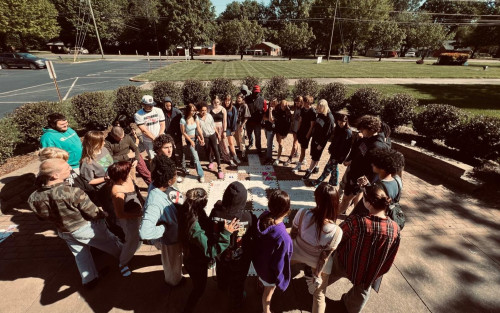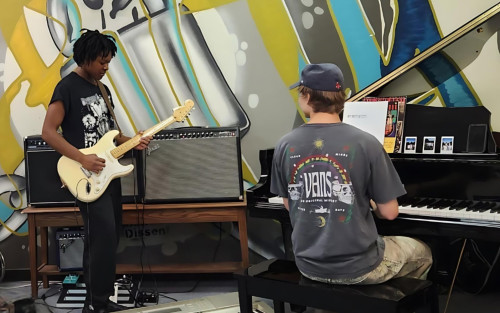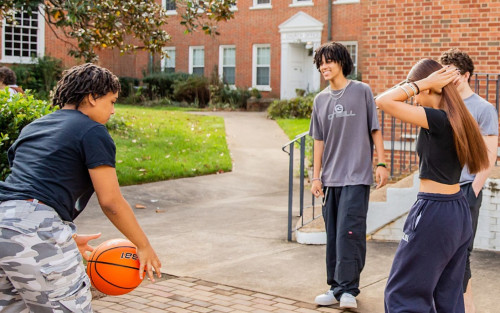






Emerald School of Excellence
Treatment Focus
This center treats substance use disorders and co-occurring mental health conditions. Your treatment plan addresses each condition at once with personalized, compassionate care for comprehensive healing.
Primary Level of Care
Integrates academic instruction with therapeutic support, helping students manage emotional or behavioral challenges while continuing their education in a structured, supportive environment.
This provider hasn't verified their profile's information. Are you the owner of this center? Claim your listing to better manage your presence on Recovery.com.
Treatment Focus
This center treats substance use disorders and co-occurring mental health conditions. Your treatment plan addresses each condition at once with personalized, compassionate care for comprehensive healing.
Primary Level of Care
Integrates academic instruction with therapeutic support, helping students manage emotional or behavioral challenges while continuing their education in a structured, supportive environment.
Private Pay
You pay directly for treatment out of pocket. This approach can offer enhanced privacy and flexibility, without involving insurance. Exact costs vary based on program and length of stay. Contact the center for specific details.
Emerald School of Excellence
Emerald School of Excellence
About Emerald School of Excellence
Emerald School of Excellence, located in Charlotte, North Carolina, is an accredited recovery high school dedicated to supporting teens committed to sobriety. The school offers a challenging academic program tailored to individual learning styles and recovery goals, preparing students for college, vocational training, or immediate workforce entry. To enroll, students are required to have at least 30 days of continuous sobriety. The admissions process includes scheduling a tour and interview to discuss goals and address any questions.
Grow in Faith, Fitness, and Fellowship
Emerald School emphasizes a well-rounded high school experience, focusing on faith, fitness, and fellowship. Students have opportunities to engage in faith-based support groups, physical activities like yoga, and creative arts programs, fostering personal growth and social connections. Each student is provided with a personalized graduation plan in addition to college preparation support, ensuring that they are well supported to achieve their academic goals. In addition to student activities on campus, teens can engage in experiential education opportunities, including rock climbing, zip lining adventures, horseback riding, and more.
Thrive in a Supportive Environment
The school was founded to address the gap in care for recovering teens transitioning back to school, providing a supportive and inclusive environment where students can excel academically while maintaining their recovery. Emerald School recognizes the importance of routine and structure for personal well-being and success, offering a daily schedule that thoughtfully balances core academics, recovery support, hands-on activities, and dedicated time for social connection.

Center Overview
Treatment Focus
This center treats substance use disorders and co-occurring mental health conditions. Your treatment plan addresses each condition at once with personalized, compassionate care for comprehensive healing.

Pricing and Program Length
Estimated Center Costs
The cost listed here (Call for rates), is an estimate of program cost. Center price can vary based on program and length of stay. Contact the center for more information. Recovery.com strives for price transparency so you can make an informed decision.
Levels of Care






Your Care Options
Specializations
Recovery School
Recovery high schools provide students overcoming substance use or co-occurring disorders with integrated support services alongside traditional academics.
Adolescents
Teens receive the treatment they need for mental health disorders and addiction, with the added support of educational and vocational services.
Who We Treat
Adolescents
Teens receive the treatment they need for mental health disorders and addiction, with the added support of educational and vocational services.
Approaches
Spiritual Emphasis
Spirituality connects patients to a higher power and helps strengthen their recovery, hope, and compliance with other treatment modalities.
Evidence-Based
A combination of scientifically rooted therapies and treatments make up evidence-based care, defined by their measured and proven results.
Therapies
Life Skills
Teaching life skills like cooking, cleaning, clear communication, and even basic math provides a strong foundation for continued recovery.
Conditions We Treat
Anxiety
Anxiety is a common mental health condition that can include excessive worry, panic attacks, physical tension, and increased blood pressure.
Depression
Symptoms of depression may include fatigue, a sense of numbness, and loss of interest in activities. This condition can range from mild to severe.
Substances We Treat
Co-Occurring Disorders
A person with multiple mental health diagnoses, such as addiction and depression, has co-occurring disorders also called dual diagnosis.
Drug Addiction
Drug addiction is the excessive and repetitive use of substances, despite harmful consequences to a person's life, health, and relationships.
Alcohol
Using alcohol as a coping mechanism, or drinking excessively throughout the week, signals an alcohol use disorder.
Languages
Care Designed for Your Needs
Amenities
Activities






